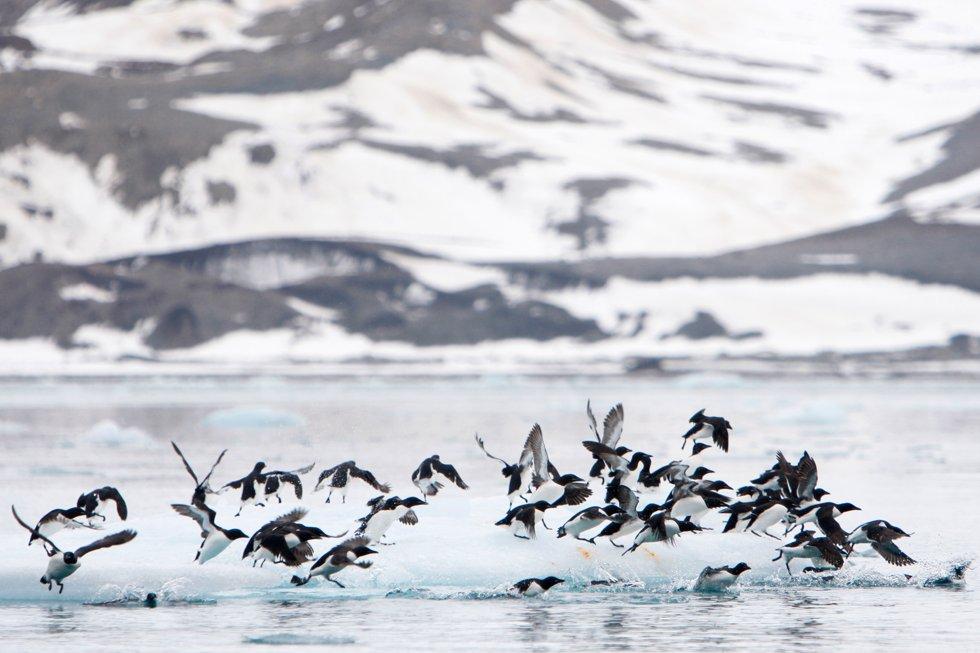Especially in the tropical and most species-rich regions of the world, the development has been dramatic. Here the wild animal population is declining very rapidly.
– The Living Planet Report presents staggering figures and shows that we are facing two acute crises: man-made climate change and loss of natural diversity, says Karoline Andaur, who heads the environmental organization WWF in Norway.
The organization works closely with researchers on the report, which is published every two years.
In this year’s version, it is estimated that monitored wild animal populations in Latin America and the Caribbean have decreased by an average of 94 percent between 1970 and 2018.
Endangered gorillas
If these figures represent general developments, there is currently little remaining native wildlife in this part of the world.
One species that illustrates this situation is the Amazonian dolphin. Here, the population declined by 65 percent between 1994 and 2016.
Developments have also been dramatic in Africa and parts of Asia. The African animal population is estimated to have declined by 66 percent.
The population of the eastern lowland gorilla – one of humanity’s closest living relatives in the animal kingdom – has fallen by 80 percent between 1994 and 2019. All gorilla variants are critically endangered.
– The natural crisis we are facing is very acute and requires immediate action. We have no time to waste, Andaur said in a statement.
Habitat loss
In assessing the state of nature and wildlife, the focus is often on how many animals are at risk of extinction.
The experts behind the WWF report also looked at the situation of animals that are not yet endangered. The results show how both the stock and the number of individuals have declined rapidly.
One of the most important reasons is animals losing their habitat. In addition, WWF points to overharvesting, introduction of alien species, pollution, and the effects of climate change.
Other researchers have arrived at similar results in the past. One study in 2017 described the situation for 177 mammal species. Nearly half have declined sharply and lost more than 80 percent of their habitat since the early 20th century.
UN meeting in Canada
In WWF reports, vertebrates have been investigated. Namely, mammals, birds, fish, amphibians, and reptiles.
Most of the world’s economy and billions of people depend on nature, says WWF. The organization believes that measures to prevent further loss of biodiversity – as well as the restoration of viable ecosystems – should be top of the global agenda.
– The report is proof that we are in the process of destroying the basis of our lives, Andaur warns.
In December, representatives of the world’s nations will gather in Montreal in Canada to agree on a new international agreement on nature conservation. WWF has high hopes for the deal.
– Nature’s Covenant is a rare opportunity to change course, mend our broken relationship with nature, and create a more sustainable and healthier future for everyone, says Andaur.
Repeated warnings
In Norway, too, there are species that are in sharp decline. Among these are gannets, pygmy geese, eels and sea urchins – the second largest fish in the world.
In Europe and Central Asia, animal populations have declined by an average of 18 percent over the last 50 years or so. The decline was smaller than in other regions, and part of the reason is that many natural areas in Europe were lost before 1970.
An important reason why habitats and animal populations are declining is because forests are being cut down and new areas are being used for agriculture. This occurs, among other things, in the Amazon rainforest.
Researchers, experts and activists have repeatedly sounded the alarm about the development. Some of them use the term “mass extinction” about what will happen.
– I don’t think it’s an exaggeration. Mass extinctions are already underway, and they are caused by humans, Professor Bob Watson, chair of the UN Nature Panel, told NTB in 2017.

“Music maven. Evil pop culture lover. Unapologetic creator. Friend of animals everywhere.”






